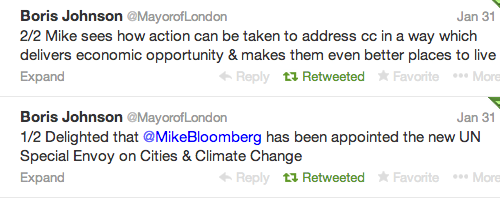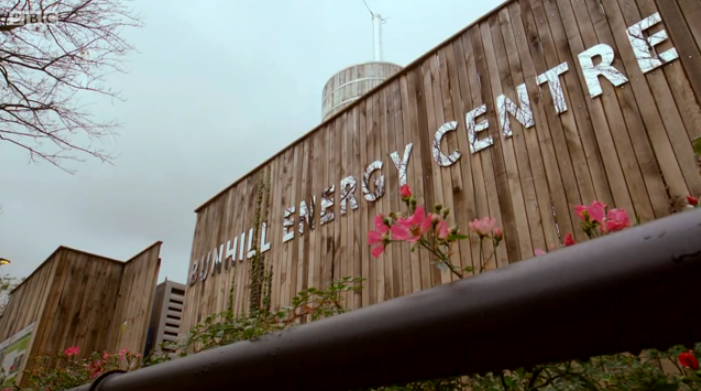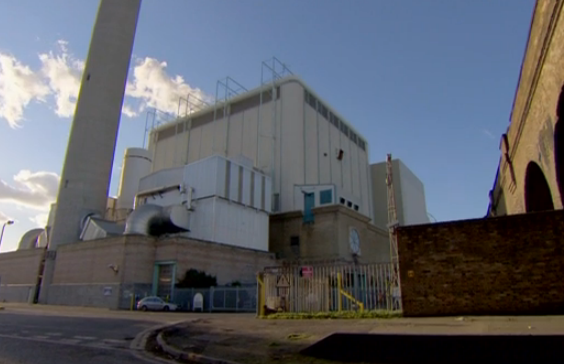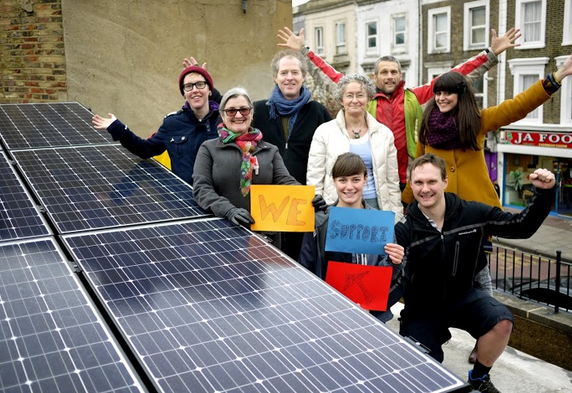Site search:
-
What’s new?
Energy for London Tags
Brent Buildings Camden Carbon Emissions CHP Cities Climate Adaptation Community Heating Community Initiatives Croydon Data DECC Decentralised Energy Distribution ECO Energy Costs Energy Efficiency Enfield FIT Fuel Poverty Funding Green Deal Hackney Haringey Housing Islington Lambeth Library Local Authorities Mayor Newham Ofgem Olympics Photovoltaics Planning RE:FIT RE:NEW Renewable Energy Retrofit Southwark Tower Hamlets Transport Waltham Forest Waste WestminsterEnergy Archives:
- February 2021 (1)
- January 2021 (15)
- December 2020 (15)
- November 2020 (9)
- October 2020 (3)
- August 2020 (5)
- July 2020 (3)
- June 2020 (4)
- April 2020 (10)
- March 2020 (5)
- February 2020 (2)
- January 2020 (3)
- October 2019 (1)
- September 2019 (4)
- August 2019 (2)
- July 2019 (1)
- August 2018 (1)
- November 2016 (8)
- October 2016 (8)
- September 2016 (2)
- August 2016 (8)
- July 2016 (14)
- April 2016 (12)
- March 2016 (16)
- February 2016 (8)
- January 2016 (4)
- December 2015 (1)
- November 2015 (1)
- October 2015 (16)
- September 2015 (3)
- June 2015 (1)
- May 2015 (1)
- April 2015 (1)
- March 2015 (1)
- February 2015 (1)
- January 2015 (1)
- December 2014 (18)
- November 2014 (4)
- August 2014 (8)
- July 2014 (7)
- June 2014 (25)
- May 2014 (8)
- April 2014 (4)
- March 2014 (12)
- February 2014 (7)
- January 2014 (13)
- December 2013 (11)
- November 2013 (15)
- October 2013 (15)
- September 2013 (18)
- August 2013 (5)
- July 2013 (20)
- June 2013 (33)
- May 2013 (8)
- April 2013 (16)
- March 2013 (25)
- February 2013 (14)
- January 2013 (20)
- December 2012 (23)
- November 2012 (23)
- October 2012 (25)
- September 2012 (14)
- July 2012 (12)
- June 2012 (43)
- May 2012 (20)
- April 2012 (8)
- March 2012 (40)
- February 2012 (39)
- January 2012 (40)
- December 2011 (22)
- November 2011 (40)
- October 2011 (33)
- September 2011 (48)
- August 2011 (40)
- July 2011 (58)
- June 2011 (41)
- May 2011 (80)
- April 2011 (38)
- March 2011 (33)
- February 2011 (25)
- January 2011 (24)
- December 2010 (3)
- November 2010 (7)
- October 2010 (6)
- September 2010 (7)
- August 2010 (1)
- July 2010 (2)
- June 2010 (4)
- May 2010 (1)
- March 2010 (3)
- February 2010 (3)
- December 2009 (5)
- November 2009 (2)
- October 2009 (3)
- July 2009 (3)
- June 2009 (1)
- April 2009 (1)
- March 2009 (1)
- February 2009 (1)
- January 2009 (1)
- December 2008 (2)
- October 2008 (1)
- September 2008 (1)
- July 2008 (1)
- March 2008 (2)
- January 2008 (2)
- October 2007 (1)
- September 2007 (3)
- July 2007 (1)
- March 2007 (1)
- February 2007 (3)
- November 2006 (3)
- August 2006 (1)
- February 2006 (1)
- May 2005 (1)
- February 2004 (1)
Author Archives: Admin
Could you warm to a district heating scheme?
March 2014: As part of work Which? are helpfully taking forward on consumer protection rights issues for people connected to district heat networks, Which? held an online discussion on consumer attitudes to district heating. Though the thread started some time ago in 2013, contributions from unhappy customers signed to a number of new networks in London are still raising their issues as of only a few days ago. Schemes in Dalston, the Olympic Village, and an unnamed SE London scheme are referenced (some of which are copied below). It should be said that one commenter does also mention “The Pimlico district heating scheme has been running for many years without any consumer issues.”
“Hi. I have just recently moved into a 2 bed new build in Dalston, East London a year ago. I have now received my first E-On bill for our heating and it comes in at a whopping £579 / 3600kWh (and this is just for 10 months). Whilst I normally welcome any energy saving initiative, I am left ultimately baffled why…”
“I have been living in a building in SE London with such a scheme for nearly two years now. Our heat bill is never below £45 per month, even in summer when it’s only used for showers for 2 people. In the summer months half of our monthly heating bill is made up of the service charge!”
“I live in an apartment block in London which operates such a scheme. Whilst this is my main residence I only occupy the apartment four nights per week. My average bill is circa £36 per month. Only £5 of this is the actual usage, the remainder being standing charge and VAT.”
“Me and my partner moved into a 1-bed apartment in the Olympic Village, London at the end of November and we have just challenged the DH supplier (East London Energy) about the costs. Many residents were shocked, as we were, to receive high bills. We were only told at the last minute that the DH scheme would be how our heating/hot water would be supplied, and while I’m all up for it in principle, I feel that the companies supplying it are ripping us off. We’re paying about £40 per month and we’ve had the heating set at 10 degrees a lot of the time.”
“My prices via EON in SE London:
standing charge: 85.871p/day (31 days=£26.61)
usage: 7.29p/kWh
VAT @ 5%
My spend with EON (district heating only, electricity is on top of that through a different supplier) in 2012/13: £814.84 for a 2 bed flat.”
“Here at Olympic Village we are trying to get through to the Olympic Development Authority and East London Energy who have set their costs too high to be sustainable for the consumer. At the moment, still waiting for something meaningful from them to show they’re taking our concerns seriously enough.”
Which? are now following up their 2013 work – see ‘District heat users – are you happy with your service?‘
Posted in Decentralised Energy, News
Tagged Community Heating, Decentralised Energy, Hackney
Leave a comment
“Demand for electricity in London double the rate as elsewhere in the country”
February 2014: The Evening Standard recently covered the London Power Tunnels project (covered in detail in some earlier stories here) , posting a short video setting out the rationale for the project, and route (which runs east-west from Hackney to Willesden, and from Kensal Green down to Wimbledon). National Grid – whose project this is – states that the reason for this investment in new power infrastructure is in part in response to fact that: “Demand for electricity in London is about 20 per cent of the UK total and that’s growing at about double the rate as elsewhere in the country.“
Posted in News
Leave a comment
Local authorities are taking charge of their energy supply…
February 2014: Useful Guardian online web discussion on how ‘Local authorities are taking charge of their energy supply, so what can we learn from projects so far? Good level of London contributions to the debate, including representatives from Hackney, Haringey and Repowering London. Worth a quick read!
London housing energy efficiency evidence session
February 2014: On 6 February, the London Assembly Environment Committee held an oral evidence session on the Mayor’s housing energy efficiency retrofit programme, RE:NEW, and its progress to achieving its stated CO2 targets. Details of the evidence session are set out here. A background paper to the evidence session is here. The session was available on webcast and can be viewed here.
Next round of the ‘Big London Energy Switch’
February 2014: Registration is now open for the February 2014 auction of the Big London Energy Switch – full details at biglondonenergyswitch.org.uk. An evaluation report on previous rounds can be viewed via this previous post. Some headline data for this London collective energy purchasing initiative is set out in DECC’s ‘Helping Customers Switch’ report (see pages 21 onwards).
Posted in News
Leave a comment
Energy & Climate Questions to the Mayor
January 2014: This month the Mayor has been asked questions in relation to:
the Mayor’s meetings with energy ministers; KPIs under the Mayor’s Climate Change Mitigation and Energy Strategy; establishing a London Energy Cooperative; ECO funding in London; the number of energy suppliers signed up to the Mayor’s MoU; the Mayor’s support for the Energy Bill Revolution’s Cold Homes Week; Kew Gardens decentralised energy scheme; London avoiding the ‘capacity crunch‘; solar installations on GLA buildings; the underheating of Londoners’ homes; the RE:NEW programme energy efficiency targets; the Mayor’s concerns over Government ‘Allowable Solutions‘ proposals; insulation industry jobs; Excess Winter Deaths; insulation projects stalled under ECO; the stalled Affinity Sutton insulation project; RE:NEW targets; retrofitting and planning restrictions; renewable energy installations on the GLA estate; GLA funding to Capita to manage the RE:NEW programme; British Gas funding to ECO; the Mayor’s High Level Electricity Working Group; LED streetlighting projects; CO2 savings achieved under RE:NEW; delayed CO2 savings under RE:NEW; the Climate Change Leaders for a Low Carbon London fuel poverty project; planning CO2 target requirements; meetings with DCLG; biofuel and London buses; GLA Environment Team budgets over next two years; Mayor’s application to the Government’s Green Deal Communities Fund; and tendering for License Lite services.
Previous months questions to the Mayor can be found here.
Posted in Decentralised Energy, Energy Efficiency, News, Renewable Energy
Tagged ECO, Fuel Poverty, Planning, RE:NEW
Leave a comment
London carbon targets to be missed by three quarters?
February 2014: At last week’s Mayoral Question Time, Green Party London Assembly member Jenny Jones questioned the Mayor over his retrofitting CO2 targets – which has been posted online and can be viewed here.
Assembly Member Jones states that by the end of the Mayor’s term of office, his CO2 reduction targets, as set out in London’s Climate Change Mitigation and Energy Strategy, will have been missed by three-quarters.
In response, the Mayor said that her comments should not be so dismissive: that he had protected the budgets for his retrofitting programme, over 90,000 homes had been retrofitted despite London’s population growing by 600,000 and London’s economy going ‘gang busters’, and that a 20% reduction in CO2 savings had been achieved since 2008. Ms Jones however promised to write to the Mayor setting out her analysis on the slow pace of London’s carbon reduction progress.
New Cities & Climate Change Envoy appointed
3 February 2014: Following on from a recent announcement that London’s former climate change and energy advisor had been appointed to head up the C40 Cities climate and energy initiative, news that the President of the Board of C40, former New York mayor Michael Bloomberg, has been appointed as the UN’s first Special Envoy on Climate Change and Cities. The World Bank’s news release states:
“…building low-carbon cities – is critically important. The United Nations Special Envoy for Cities and Climate Change needs to be a visionary who ruthlessly pushes to reach bold targets as quickly as possible. The selection of Michael Bloomberg is inspired. He has the potential of helping mayors across the world turn their cities into clean metropolises that dramatically reduce emissions of dangerous levels of pollutants into the atmosphere. The potential global good is enormous: Estimates show if the world’s cities take a low-carbon development path, we could cut global greenhouse gas emissions by 10 giga-tons, or 30 percent of the world’s emissions, which is twice the annual carbon footprint of the entire European Union.”
This new post builds on an announcement made by the World Bank in October 2013 of a new Low-Carbon Livable Cities (LC2) Initiative – more of which here.
And good to see our own Mayor welcoming the creation of this new position:
£10m Urban Community Energy Fund launched
January 27 2014: The Government’s new Community Energy Strategy is being launched today and press reports have highlighted that it will include a new £10m Urban Community Energy Fund (UCEF). This mirrors the existing Rural Community Energy Fund, and is clearly welcome news for London-based community-led energy projects.
This fund will be open to non-rural communities and will provide up to approximately £150,000 of funding for feasibility and pre-planning development work to help projects become investment ready. The funding will be available in two stages:
- Stage one will be a grant of up to approximately £20,000 for feasibility of renewable energy projects.
- Stage two will be a loan of up to approximately £130,000 to support pre-planning development work, planning applications and to develop robust business cases to attract further development.
No details as yet to when the Fund will be launched or how long it will operate for. Hopefully this will all become apparent later today…
Posted in Decentralised Energy, News
Tagged DECC, Decentralised Energy, Funding, Renewable Energy
Leave a comment
Decentralised Heat and Power Points to London’s Energy Future
January 2014: Still a few days left to see BBC’s excellent Inside Out London programme. The first half covers the increasing levels of energy theft being observed by energy companies and -18 minutes in – the programme looks at potential future solutions to the provision of more affordable heat and power in London.
The growth in local energy solutions, such as combined heat and power (CHP) plants and the introduction of new district heating schemes are highlighted, including recent projects installed in Islington (Bunhill CHP) and the heat network constructed from the SELCHP waste to energy scheme, which transports low cost heat to 2,500 households in Southwark with an approximate 22% reduction in heating charges.
City Hall Carbon Emissions Session
January 2014: The London Assembly’s Environment Committee is to hold an oral evidence session next week (30 January) on the Mayor’s carbon targets. A paper sets out that the evidence session forms part of an “investigation” into the delivery of the carbon targets, which will take place over February and March 2014.
At the evidence session – which is open to the public – the Committee will meet with Mayoral Advisors and GLA officers in the environment and the property portfolios, as well as external guests from the energy sector, local government and other external stakeholders to discuss targets to improve energy efficiency in homes, targets to increase decentralised and low-carbon energy supply, and general carbon reduction targets and strategy.
The targets are set out in the Mayor’s 2011 Climate Change Mitigation and Energy Strategy and include:
- Energy efficiency in homes and workplaces – particularly under
- RE:NEW (a support team to help social housing providers and local authorities to enable domestic retrofit projects to be delivered faster, bigger and with better value for money)
- RE:FIT (a building retrofitting scheme to support public sector organisations to reduce their carbon footprint and subsequent energy bills)
- non-GLA work such as the Green Deal (a Government initiative that is designed to help businesses and home owners to employ more green technologies in their properties);
- Low-carbon transport;
- Low-carbon energy generation;
- Tackling fuel poverty;
- Reducing carbon emissions in the GLA group;
- Measuring London’s carbon emissions; and
- Funding routes, business models and skills opportunities in the low-carbon economy.
Hackney Energy hit the ground running!
January 2014: This week saw some positive news stories concerning a new London community energy group – Hackney Energy. The group launched a new twitter account @HackneyEnergy and website and – more importantly – announced that they had established a new community solar project. It’s modest at 3.84kW – but it helps power a public toilet and cafe in Clapton. Read a blog on the great story behind this project.
And on Friday the Hackney Gazette and Inside Housing covered plans by Hackney Energy to work with Repowering London on a community PV project, similar in scope to the Brixton Energy scheme. The Gazette reports that:
“Youth internships and apprenticeships will also be created by the scheme, which plans to will increase awareness about energy efficiency, provide a financial return to investors, and reduce Hackney’s carbon footprint.
“Repower London’s chief executive officer, Agamemnon Otero said: “It’s not just about putting some solar panels up on the roof, but it’s about creating a platform for those who are most disaffected, those who are out of work, so there’s something they can be part of, so they can donate their time and energy and see their community changing.” Also see Hackney Council news release.





